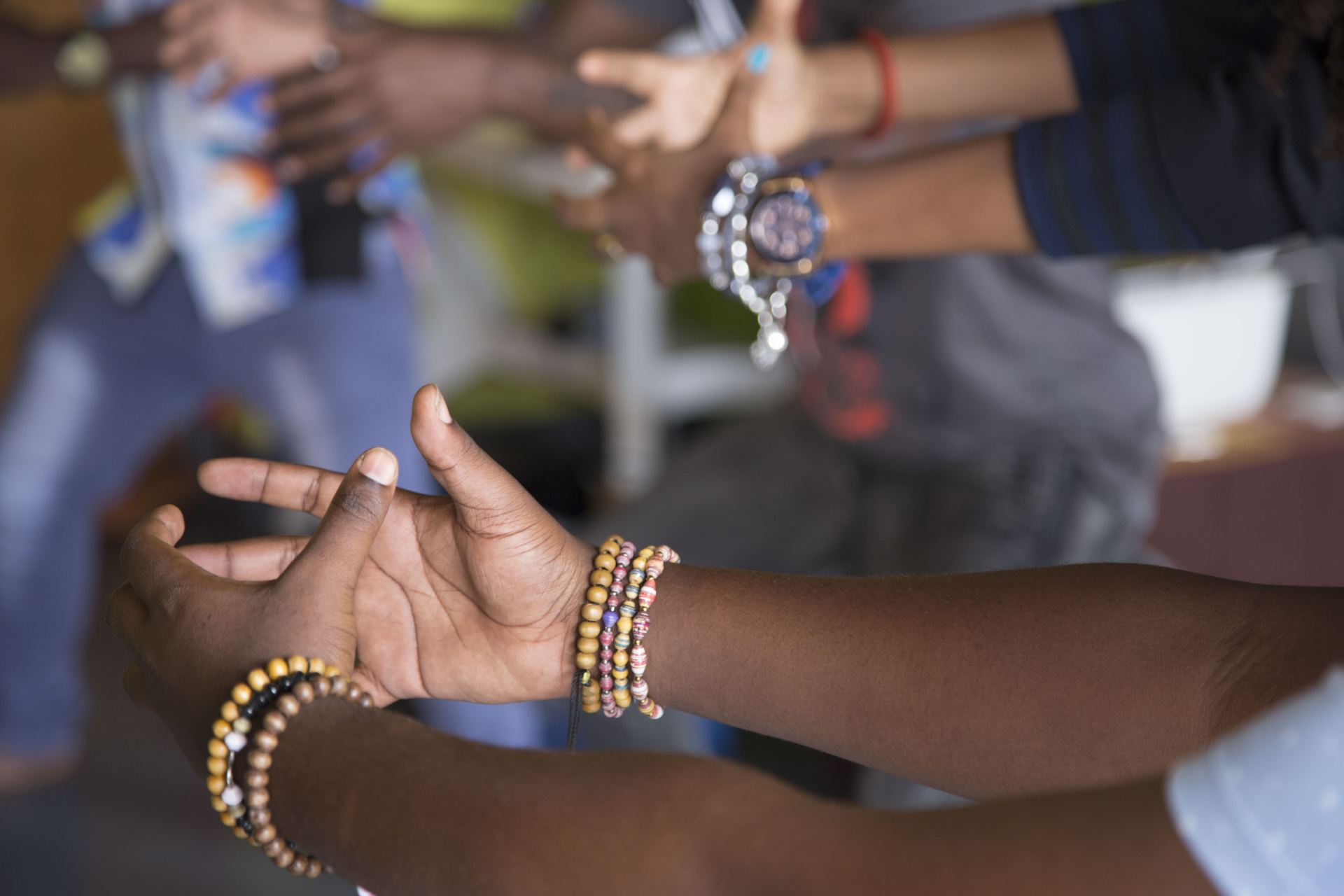Art-based methods enable different stakeholders and audiences to engage with critical ideas and issues. The Arts and Humanities Research Council (AHRC) Global Challenges Research Fund (GCRF) project ‘Mobile Arts for Peace (MAP): Informing the National Curriculum and Youth Policy for Peacebuilding in Kyrgyzstan, Rwanda, Indonesia and Nepal’ aims to explore the use of art-based methods to enable communication structures between young people and decision-makers from local to regional levels.
In a MAP webinar on 10 May 2022, young researchers from 16 participating MAP Youth Researcher Clubs in Kyrgyzstan and six MAP Child Clubs in Nepal demonstrated how they used art-based research methods to explore underlying issues and problems and to communicate these issues with local and regional decision-makers.
Experts from the Open Innovation Team, a UK cross-government unit that works with academics to help officials generate analysis and ideas for priority projects, served as respondents. In relation to creating systemic change, respondents stated that it would be important to build a consortium with like-minded organisations or projects to help put pressure on decision-making or policy-making bodies.

The webinar enabled the MAP team and webinar attendees to think deeper about next steps concerning how art-based methods might enable shifts in behaviour and attitude in relation to practices that might be embedded within certain cultures. For instance, there is legislation against child abuse in relation to migration in Kyrgyzstan, but some of the practices have become normalised. Art-based outputs including posters, drawings, films, and performances demonstrated the impact of these social issues on the lived experience of young people.
Findings related to the causes and recommended solutions to the issues identified by the young researchers, that evolved through conversations between young people and local decision-makers, were incorporated into policy briefs. In our next webinar, young researchers from all of the four countries will share their youth-led research projects including art-based outputs and policy briefs through a virtual exhibit with respondents from UNESCO.
MAP will continue to engage local and regional decision-makers as we move to the next phase of the project which will focus on building communication structures between young people and policy-makers from local to regional to national levels.
More Details:
For more information about Mobile Arts for Peace (MAP), please visit: https://map.lincoln.ac.uk
Contact Principal Investigator (PI) Professor Ananda Breed at ABreed@lincoln.ac.uk
